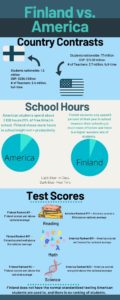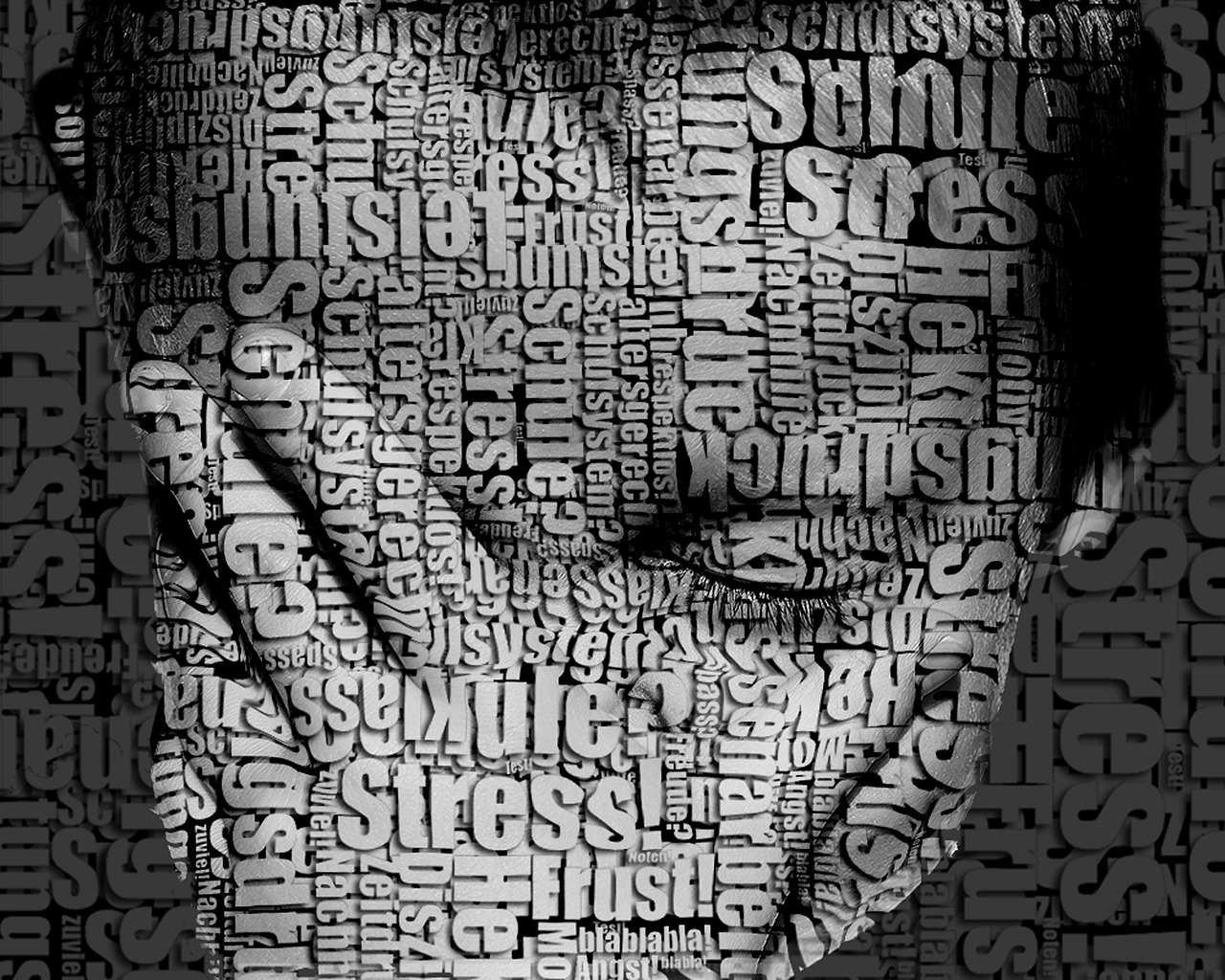(Photo Courtesy of Pixabey)
Contributors: Gretchen Stern, Rachel Fearn, and Alexis Taylor
Since the creation of modern education, people have wondered why we need such a specific schooling system. Especially in high school, why there are so many requirements and seemingly useless information taught? However, with some adjustments, the system could change to be more effective. Students would learn more fun, interesting, and helpful information for whatever they may do after their education. While keeping to the four core classes and the basic knowledge in all subjects, there could be a lot more freedom for students to choose what they want to learn, and not be stuck in boring classes learning concepts they will soon forget. So, what would a better, and more helpful high school structure look like?
English:
Throughout high school, students have four English class requirements — English 1, 2, and 3, and 4. However, these requirements are restrictive and make kids read and write a lot of material that will not help them in the future. Just one of many examples: why do we need to read 4-5 Shakespeare plays? Or write papers on books written in a different time period? While it is important to read some of these old classics, there is also plenty of good literature written for our more modern time. So what would be a more beneficial English structure?
| Freshman | – Paideia or English 1 (honors/academic) where students read 1 play and a classic book, but then more modern literature that students can better connect to. If the reading deals with more current issues and ideas it will be more interesting for students to think and talk about. Writing is more technical — about current events, business, world issues, and less analyzing literature. |
| Sophomore | – Paideia (can take it one of two years) or English 2 (honors/academic) where students read 1-2 more classics and 1 Shakespeare play, but most literature is more recent. There are fewer papers, and more project-based writing, meaning it is not just writing five-paragraph essays all the time. Incorporating more fun and interactive things like making videos, presentations, and report/analysis papers will get students more prepared for the real world. There should also be more time spent on teaching how to write good emails and letters, a skill needed in many jobs. |
| Junior/Senior Required to take 2 semesters of English electives | – Required to take at least one of the following electives: African American Lit., European Lit., Modern Lit, Classic Lit, American Lit. or others. This gives more freedom to choose specific topics students find interesting. Writing assignments are not solely based on text, but how the text relates to the real world today and what students can learn from it. |
History:
In high school, people need to take 4 different history courses. There is a World History and 2 American History classes, then the Civics and Economics class for seniors. This means the structure does not leave much wiggle-room, and students are stuck learning all these battles, treaties, and facts when you really only need a basic understanding of both American and World History to be well-educated for most careers.
| Freshman | – World History (honors/academic) that focuses more on the political/economic systems, cultural development, and geography of the world. There should be more projects for students to work together using critical thinking skills to think about solutions to world issues. |
| Sophomore | – American History (honors/academic) should focus less on specifics from every individual battle and conflict and more on the overall creation and growth of America into what it is today. |
| Junior | – Optional pick from the many other social studies electives: Religions in World Cultures, Psychology, AP European History, and Human Geography just to name a few. |
| Senior | – Civics and Economics is a mandatory class that should focus a little less about the government, and teach more on “life skills” — how taxes work, finance, mortgages, and credit. There should be projects that force students to handle situations they will face in the real world |
Science:
Science classes in high school cover a wide variety of topics — Biology, Chemistry, Earth/Environmental, and Physical Science. However, there is so much information packed into these courses that unless you are going to pursue a career in that specific topic, there is no need to learn it. For example, there is no need to learn the entire periodic table and memorize chemical equations if it is not something you will deal with in the future.
| Freshman | – Earth/Environmental (honors/academic) should teach basic information about our Earth and have a heavy focus on the environment and the issues/solutions to environmental problems. This gives students knowledge of what is going on in the world and lets them think independently. |
| Sophomore | – Biology (honors/academic) should also teach less specific information, and if a student wants more in-depth teaching they can do a higher-level biology elective instead. Teachers should be able to choose subjects they find more interesting and informative to spend more time on. |
| Junior | – Chemistry (honors/academic) should teach an overview of the elements and how chemistry works. If a student wants more in-depth teaching they can do a higher-level chemistry elective. |
| Senior | – Choose between Physics, Astronomy, Anatomy, Marine Ecology, or Forensic Science to be able to learn more about a topic the student finds interesting. |
Math
There are a number of different paths you can take in math, but no matter how you plan it out, you learn mostly the same things. This includes countless concepts that are not only very confusing for many people but do not really have much real life application. What the courses need to do is teach math topics that will still get students to think hard but also could help in real life. While some might need the high level math knowledge for their future careers, many will not and do not need to know a lot of the material taught now.
| Freshman | – Math 1 (academic/honors)- teaches basic algebra, geometry, and trig. This still lets students learn a bit about each subject, developing their thinking and problem-solving skills. |
| Sophomore | – Statistics (academic/honors) – focuses on giving students examples of data they might encounter in real life, teaching how to analyze it, and draw conclusions. There should be projects where people can use probability and reasoning to look at real-life situations. |
| Junior & Senior Year | – Can take either a calculus course then a math elective or two electives to meet requirements. This allows calculus to be an option for those who want it, but students can also choose math-based classes that might help them in what they are planning to do after high school. Choices include courses focusing on accounting, business, marketing, and finance. |
How Should We Model Our School System?

The Finnish School System has proven to have much higher success rates than the American School System. They actually have less school-time, and no standardized testing, but have higher performance levels. While systems like the one in Finland have an advantage (they are much smaller than America), we should still use them as a model example showing there is a more successful way to run our education.
What Are Some LRHS Specific Issues?
Currently, the exam schedule is frustrating for students and teachers. Should we have first semester exams before the long Christmas break instead of afterward?
Interview with Dr. Eagle, a biology teacher at LRHS.
Question: How do you feel having exams after Christmas break affects your student’s grades?
Answer: For the student’s sake, it would be better to have exams prior to Christmas break. I think over the break, since it’s such an extended time, that some of the content learned before the break will be forgotten and students won’t keep up on it.
Question: From a teacher’s aspect, do you feel it would be easier to have exams before the break?
Answer: Time wise, some adjustments would have to be made. For our biology classes and most AP classes, we have so many units that the time after Christmas break is actually essential to teaching all of the information. We do need that time so it would be necessary to make some adjustments for the time that students are in school, as we do need that time.
Video Interview With Anna and Lauren Dogget, students at Cardinal Gibbons High School.
Another aspect of school that bothers many students is how early Leesville Road High School starts the school day. Sometimes during the year, it is barely light out when students are walking into the building. How do people feel about the early start time of 7:18 and why do we have it?
Interview with Haley Drennen, a former LRHS student who now is at William Peace University.
Question: How do you feel waking up later in the day makes a difference for your education?
Answer: Waking up later is more beneficial for me since I’m more of a night owl. getting the extra 2 hours of sleep helps better with my concentration in class since I’m not as tired as I would be if I were to wake up at 6 like I did when I was at Leesville. Now, I have time to get ready without rushing and I have time for breakfast which also boosts my energy a lot.
Question: Did you ever feel better waking up at 7:25 and getting an early start or is sleeping in better?
Answer: Sleeping in is definitely better. On most days, I wake up on my own time which I find much better for my energy, my mood, and my concentration in class.
Question: Do you feel as if you can learn more after getting more sleep?
Answer: After getting more sleep, I’m honestly more motivated to go to class and do the work because I got a good night’s rest so I have more energy. On the days I don’t get the amount of sleep I should, it’s usually hard for me to focus in my classes but when I’m able to wake up later it’s much easier for me to concentrate and take in all the information.
Interview with Leesville Road High School teacher Mrs. Rogers about her take on the current school-time.

Hi! My name is Gretchen and I am a senior editor and SEO editor for The Mycenaean. I love to travel and listen to music.
